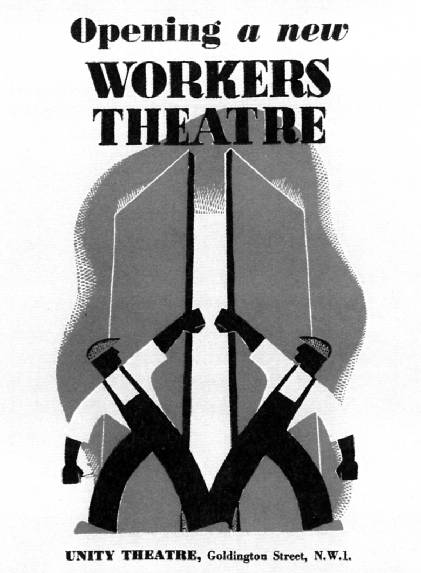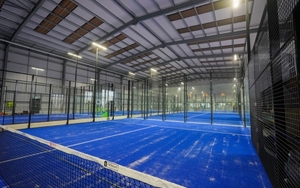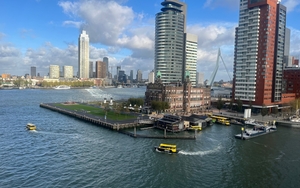UNITY Theatre is well on the way to a major rebuild after winning a £435,000 government grant to make the venue fit for 21st century purpose.
Artistic Director and CEO Matthew Linley, celebrating a year in the job, had another reason to high five staff after Arts Council England announced the venue been fully successful in its bid for Small Scale Capital Redevelopment funding.
But the one-time synagogue, on Hope Place, still has to find another £125,000 towards the total £750,000 bill for the work which will take place this summer - the first in almost two decades.
It will see the entrance moved, bar and foyer spaces opened out and its two performance spaces will be soundproofed, which means they can both be used at once!
"The redevelopment is driven by the needs of Unity’s artists and audiences and is the first major work to be carried out since the previous redevelopment in 1998. It will open out the foyer and bar spaces, making much more effective use of the facilities and building," it says here.
 Matthew Linley
Matthew Linley"Improved soundproofing between the two performance spaces will allow both venues to be used together more often and, as a result, create more opportunities for work and artist development, as well as increasing revenue. The redevelopment will also ensure that Unity Theatre has a strong digital profile and is an environmentally sustainable venue."
Linley said: “I joined the Unity almost a year ago to the day, and ever since that first day it’s been really clear to me the very special role Unity plays here in Liverpool, the region and indeed beyond. This generous award from Arts Council England gives us the opportunity to ensure we are a theatre for the 21st Century; It’s about making Unity strong and resilient, enabling us to be – for our artists and audiences – a place to dream.”
Liverpool architects, K2 are leading the scheme which will see the theatre close on June 25 and reopen on September 26 in time for the autumn season.
In addition to the Arts Council money, Unity says it will make up the £750k total with an unconfirmed contribution from Liverpool City Council and its own reserves. The remaining fundraising target is £125,000. Unity aims to raise £75,000 through trust and foundation applications and the remaining £50,000 through individual giving.
Executive Director, Sue Williams, said: “We have twelve months to raise the further £50,000 needed to carry out all our vital work. In this time if every visitor donated just £1, this could be achieved.”
Chairman of Unity Theatre’s Board, Chris Bliss, who is also the managing director of Liverpool ONE, said: “We're thrilled that Arts Council England have chosen to support the theatre’s redevelopment. It’s a real vote of confidence in the work the Unity is doing - and once complete - the project will enable the theatre to play an even bigger, more ambitious role in Liverpool, the region and beyond.”
For further information on the plans visit this
'The workers, united, will never be defeated'

The Unity is a leftover from the times when theatre was political, unafraid and radical.
The name itself was used by a wider national workers theatre movement and, at one time, Unity Theatres up and down the land were instrumental in bringing these themes to audiences when it was not fashionable for the mainstream theatres to do so.
Merseyside Left Theatre was formed in the 1930s and became Merseyside Unity Theatre in 1944. From the start the company was radical and experimental, however, unlike many Unity Theatres, the Merseyside group staged classics alongside contemporary left wing theatre.
The Unity Theatre movement, along with many theatre clubs, started to disappear with the abolition of licensing in the 1960s as mainstream theatres met the demand for radical theatre. Merseyside Unity Theatre survived into the early 1980s with one of the last initiatives to develop the current Unity Theatre on Hope Place, to convert the former synagogue from a photographic studio to a theatre.
"Merseyside Unity Theatre" ended in the mid 1980s and was reborn as simply Unity Theatre. It was already well established under Hope Place Community Association management and it continued to expand as a base for professional, small scale touring theatre. It was also a base for Merseyside Moviola, run by Eddie Berg and Mike Stubbs, who later gave birth to FACT. Linking both organisations was Graham Frood who joined Merseyside Left Theatre in the 1930s and who continued his involvement with Unity until his death in 2003.
In 1994, led by longtime artistic director Graeme Phillips, the Unity received funding from the Arts Council for development: A Foundation for Sport and the Arts award and £1.6m from the Arts Council of England Lottery panel and the Government Office of Merseyside. The refurbishment was completed in August 1998.















